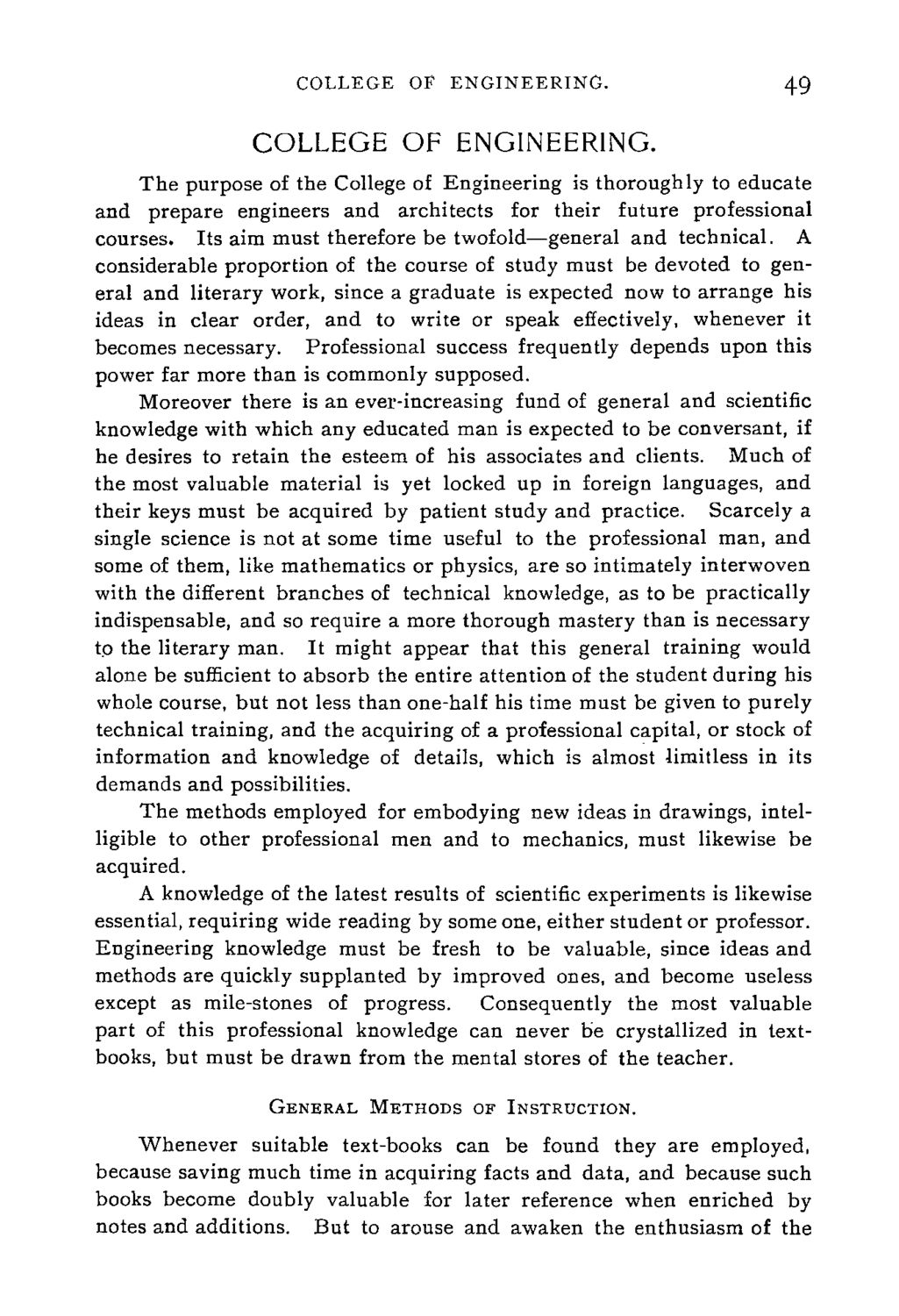| |
| |
Caption: Course Catalog - 1892-1893
This is a reduced-resolution page image for fast online browsing.

EXTRACTED TEXT FROM PAGE:
COLLEGE OF ENGINEERING. 49 COLLEGE OF ENGINEERING. The purpose of the College of Engineering is thoroughly to educate and prepare engineers and architects for their future professional courses. Its aim must therefore be twofold—general and technical. A considerable proportion of the course of study must be devoted to general and literary work, since a graduate is expected now to arrange his ideas in clear order, and to write or speak effectively, whenever it becomes necessary. Professional success frequently depends upon this power far more than is commonly supposed. Moreover there is an ever-increasing fund of general and scientific knowledge with which any educated man is expected to be conversant, if he desires to retain the esteem of his associates and clients. Much of the most valuable material is yet locked up in foreign languages, and their keys must be acquired by patient study and practice. Scarcely a single science is not at some time useful to the professional man, and some of them, like mathematics or physics, are so intimately interwoven with the different branches of technical knowledge, as to be practically indispensable, and so require a more thorough mastery than is necessary to the literary man. It might appear that this general training would alone be sufficient to absorb the entire attention of the student during his whole course, but not less than one-half his time must be given to purely technical training, and the acquiring of a professional capital, or stock of information and knowledge of details, which is almost limitless in its demands and possibilities. The methods employed for embodying new ideas in drawings, intelligible to other professional men and to mechanics, must likewise be acquired. A knowledge of the latest results of scientific experiments is likewise essential, requiring wide reading by some one, either student or professor. Engineering knowledge must be fresh to be valuable, since ideas and methods are quickly supplanted by improved ones, and become useless except as mile-stones of progress. Consequently the most valuable part of this professional knowledge can never be crystallized in textbooks, but must be drawn from the mental stores of the teacher. GENERAL METHODS OF INSTRUCTION. Whenever suitable text-books can be found they are employed, because saving much time in acquiring facts and data, and because such books become doubly valuable for later reference when enriched by notes and additions. But to arouse and awaken the enthusiasm of the
| |